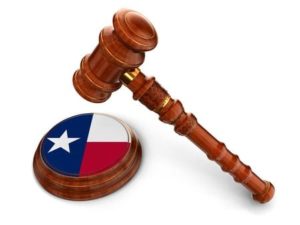
In Geoffrey Dugger v. Mary Ann Arredondo, 2013 WL 4608741 (Tex. 2013), the Texas Supreme Court considered the viability of the common law “Unlawful Acts Doctrine” as an affirmative defense in a wrongful death lawsuit, in light of Texas’ proportionate responsibility scheme codified in § 33 of the Texas Civil and Remedies Code (CPRC) and the limited assumption of the risk affirmative defense provided in by CPRC § 93.001. Under the Unlawful Acts Doctrine, a Plaintiff is barred from recovering damages when it can be shown that, at the time of the occurrence, the Plaintiff engaged in an illegal act that contributed to the injury.
The Decedent, Joel Martinez, is alleged to have died from a drug overdose after snorting “cheese,” a form of black tar heroin, an illegal act. Joel Martinez’s mother, Mary Ann Arredondo, alleged that her deceased son’s friend, Geoffrey Dugger, was negligent because he delayed calling 911 and told the responding paramedics that Martinez had only been drinking alcohol, thus preventing Martinez from receiving treatment for an overdose of narcotics.
Dugger alleged an affirmative defense based on the common law Unlawful Acts Doctrine, which bars a Plaintiff from recovery if, at the time of the injury, he was engaged in an illegal act that was inextricably intertwined with the claim and the alleged damages would not have occurred but for the illegal act. Dugger also asserted that Arredondo’s claims were barred by CPRC § 93.001. Arredondo contended that the legislature’s enactment of (1) the proportionate responsibly scheme CPRC § 33 and (2) CPRC § 93.001, which provides an affirmative defense to civil actions brought by convicted criminals seeking to recover damages arising out of their final conviction of a felony offense and/or occurring while a Plaintiff commits or attempts to commit suicide, superseded the Unlawful Acts Doctrine.
The Supreme Court held that the common law Unlawful Acts Doctrine is no longer valid as an affirmative defense in personal injury and wrongful death cases. The Court found that as with other common law assumption-of-the-risk defenses, the Unlawful Acts Doctrine was abrogated by the CPRC § 33 proportionate responsibility scheme. Moreover, unless the requirements of the affirmative defense in CPRC § 93.001 are met, a Plaintiff’s share of responsibility for her or his injuries should be compared against the Defendant’s pursuant to the proportionate responsibly scheme, even when the Plaintiff engaged in an illegal act.
What is the impact of this case?
With this decision, the Supreme Court has determined that the Unlawful Acts Doctrine is no longer a viable affirmative defense. Therefore, a Plaintiff who has engaged in an unlawful act at the time of his injury, and whose claims are not otherwise excluded by CPRC § 93.001, is not barred from recovery and may have his proportionate responsibility compared to the Defendant’s.

